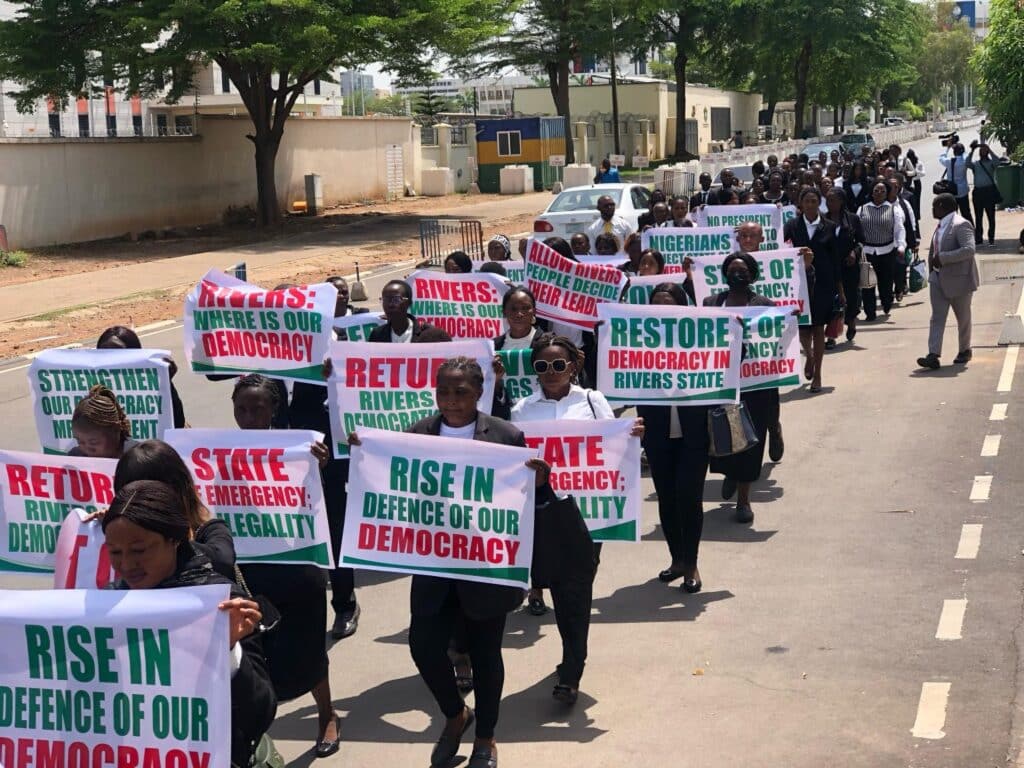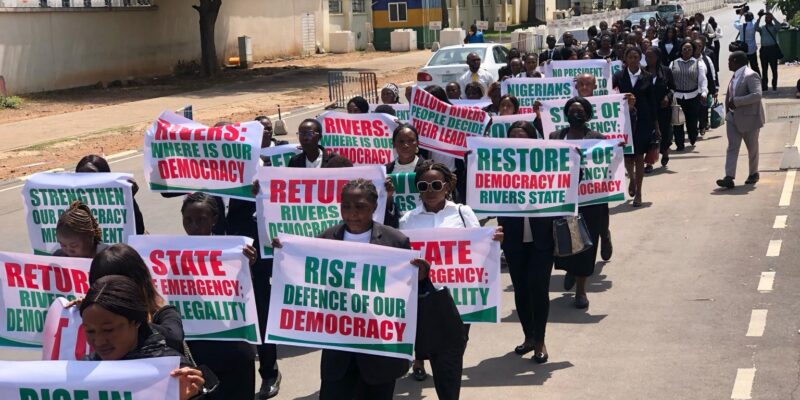
Abuja, Nigeria — A coalition of human rights lawyers under the banner of Lawyers in Defence of Democracy staged a protest in Abuja on Wednesday, calling for the immediate restoration of democratic governance in Rivers State and an end to what they described as “unconstitutional interference” by the Federal Government.
The protest, which culminated in a march to the United States Embassy, saw the lawyers demanding international pressure on President Bola Tinubu to reverse the suspension of Rivers State Governor Siminalayi Fubara, his deputy, and the entire state House of Assembly.
The group, led by its Country Director, Barrister Uche Chukwu Udeh Sylvester, denounced the recent declaration of a state of emergency in Rivers State, labeling it “unjustified” and “undemocratic.” They argued that there was no security threat or breakdown of law and order to warrant such an extreme constitutional measure.
“There was no clear and present danger to justify this declaration,” Sylvester told journalists. “The due process was not followed, and this move grossly undermines the principles of constitutional democracy.”
In a letter addressed to former U.S. President Donald Trump — a move that raised eyebrows — the lawyers appealed to the international community to intervene and help safeguard Nigeria’s democratic institutions. The letter criticized President Tinubu’s decision as reminiscent of military-era governance, warning that it sets a dangerous precedent for Nigeria’s democracy.
“No provision of our Constitution permits the President to unilaterally suspend elected state officials,” the letter read in part. “This action is a direct assault on constitutional order and democratic governance.”
The group also condemned the National Assembly for what it described as a hasty ratification of the emergency rule, calling it “an assault on democracy.”
They urged President Tinubu to reconsider his stance and allow Governor Fubara to resume his duties as the legitimately elected leader of Rivers State. According to them, the judiciary and other state institutions are fully equipped to resolve political disputes without resorting to executive overreach.
“In a constitutional democracy, conflicts should be addressed through lawful means, not through arbitrary actions that suspend the will of the people,” the group emphasized.
The development has sparked widespread debate among legal and political analysts, with many questioning the legality and implications of the President’s actions.

Comments